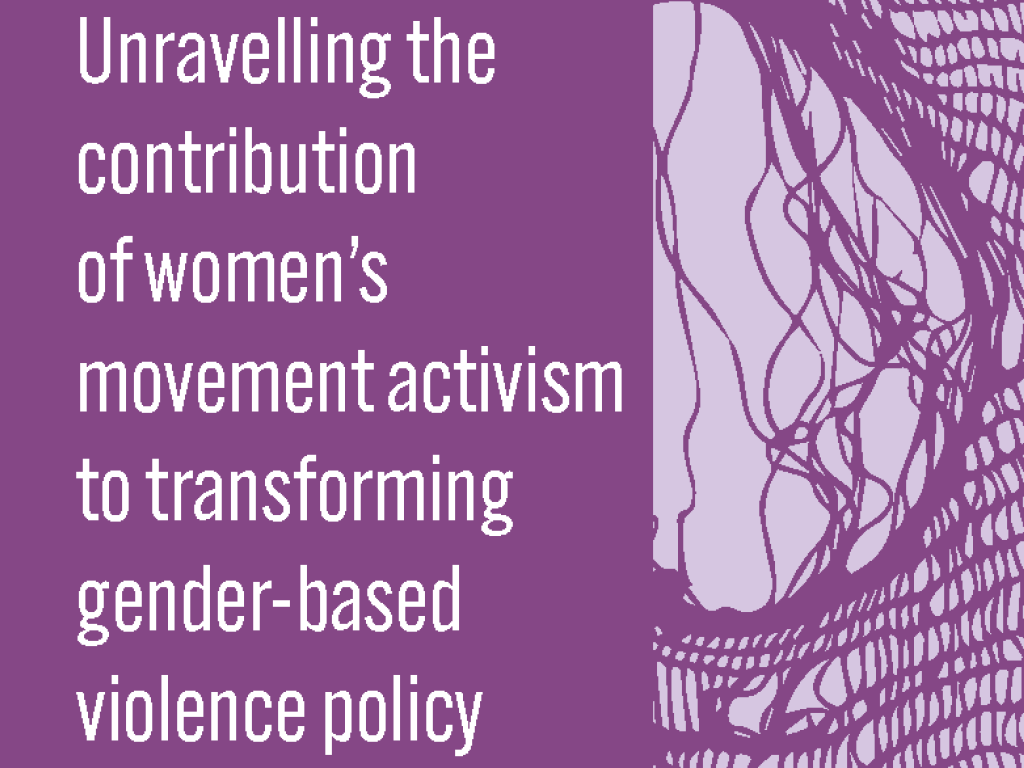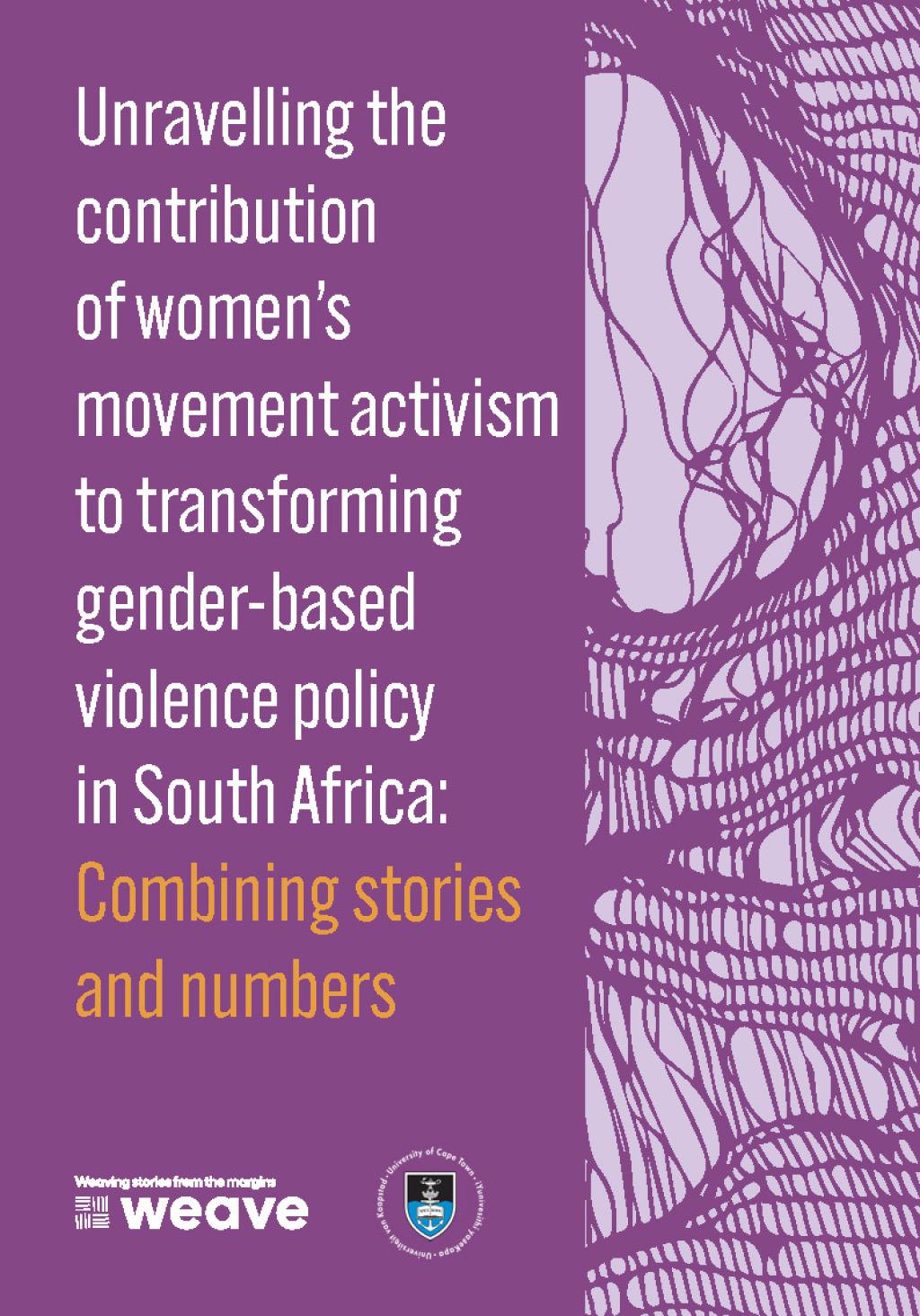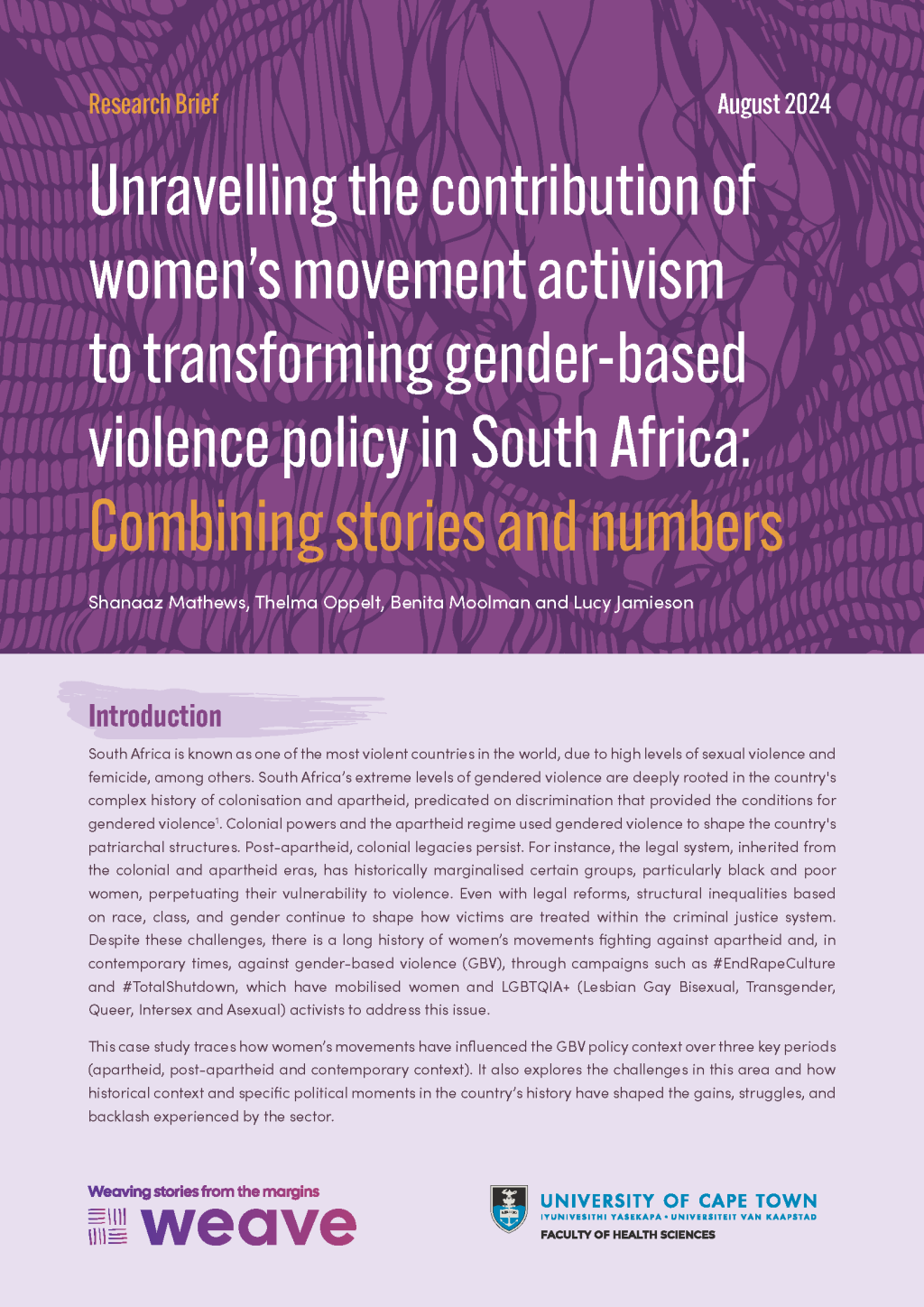Country report launch: Women Engaged Against Violence Everywhere (WEAVE)


The Women Engaged Against Violence Everywhere (WEAVE) Collective is forged out of a shared commitment to feminist movements who are addressing violence against women and girls (VAWG) and to uplift and weave together the crucial stories emerging from the margins. Researchers and activists from South Africa, Australia, India and Nicaragua have joined to explore how feminist movements contribute to ending violence against women and girls at a local, national and global level.
Each country has its own path, story, and journey to share. Using feminist and participatory methods, the research teams are documenting historical trends and political milestones, hard-won achievements through political campaigns and landmark court cases, intersections with other social movements, as well as political backlash. The WEAVE Collective members seek to learn from each other, appreciate and recognise the patterns emerging from each country, and co-create knowledge through papers, new theories, documentaries, and art.
The South Africa case study research team, from the University of Cape Town are: Professor Shanaaz Matthews, Benita Moolman, Thelma Oppelt, Juliana Davids, and Lucy Jamieson (Senior Researcher, Children's Institute).
Women’s movements played a vital role in shaping a democratic South Africa, but the struggles for gender equality and women’s experiences of gendered violence during apartheid are strikingly absent from the historiography of South Africa. Women’s experiences of gender-based violence during the apartheid struggle were deliberately silenced for the bigger cause – to dismantle apartheid. Many feminists who entered the first democratic government and led the formulation of progressive legislation and policies in support of women’s rights left the state (1999 – 2008). Despite these obstacles, Shukumisa and other coalitions formed alliances that mobilised around the Sexual Offences Legislation and other specific issues and legislation, but alliances often dissolved after reaching their goals. Mobilisation starting on campuses around GBV using social media resulted in mass mobilisation through the #TotalShutdown campaign and highlights the complex intersectional struggle of gender-based violence. Calling on the South African President to account with a set of 24 demands handed to him. The first Presidential gender-based violence summit was held in November 2018 and an interim steering committee established to spearhead the collaborative process of developing the National Strategic Plan on GBV and femicide.
The South Africa country report shows that different processes require different forms of activism. The goal of legislative and policy reform has been central to women’s activism and organising across decades in South Africa.

Read the report here, and the research brief here.
Watch an infographic video on the research project, or the documentary style project video that includes interviews with feminist activists here.
